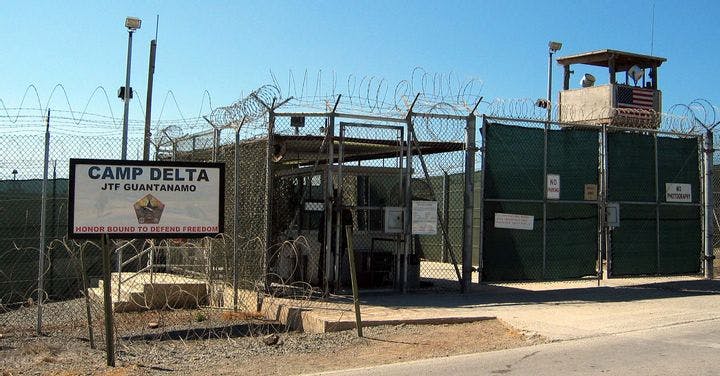Spring 2010
The Not-So-Long Arm of the Law
– The Wilson Quarterly
How can we define the legal status of those detained at Guantánamo Bay?
For years, legislators, executive branch lawyers, and the courts have been tied up in knots over the scope of the rights that must be accorded suspected terrorists. Are they due a civilian jury? Can they be detained without being charged? Philip Hamburger, a professor at Columbia Law School, says that a more basic question must first be ad dressed: Do American legal protections even cover such people at all?
Hamburger argues that a legal doctrine prominent during the American Revolution, the “protection principle,” can help U.S. officials sort people into two groups: those who are protected by U.S. law and those who aren't. The protection principle is based on the long-neglected idea that allegiance to a sovereign and the guarantee of that sovereign’s protection are reciprocal. Foreigners who enter the country in amity traditionally have enjoyed protection, but noncitizens who take up arms against the United States or pledge allegiance to enemy countries are neither bound nor protected by U.S. laws. (Under this logic, 9/11 mastermind Khalid Sheikh Mohammed, whose trial in a civilian courts has been a subject of controversy, would not be entitled to such a trial.)
Today, the U.S. government relies heavily on geography in deciding whether its laws apply. A Supreme Court decision in 1950 “left open the possibility that prisoners of war, if held domestically, might in some instances have a right to habeas.” It’s for this reason that the government has come to rely on facilities outside the United States, most notably the Guantánamo Bay detention camp, for holding suspected terrorists. But under the rubric of protection, geography matters less and allegiance matters more. Thus, even bringing enemies onto America’s sovereign territory for detention would not imbue them with the rights afforded to Americans.
The beauty of applying the protection principle, Hamburger writes, is that by confining legal rights to a fairly well-defined group of people, officials can avoid watering down those rights, allowing “safety and civil liberty to coexist.”
But the U.S. government has ignored the protection principle, lumping together Yaser Esam Hamdi, who was an American citizen at the time of his arrest in Afghanistan in 2001, with non- citizens under the label “enemy combatants.” In a 2004 decision, the Supreme Court sent the cases of such combatants, including Hamdi, to military proceedings, apparently making it permissible for “a person within protection, even a citizen, [to] be denied judicial process and treated as an enemy.” In Hamburger’s view, “The Court . . . thus achieved the worst of both worlds,” watering down rights for citizens and providing enemies with more due process than they are owed.
Of course, in treating detainees, the United States must abide by international treaties and notions of decency, he concludes, but “the power to act harshly should this become necessary” remains.
* * *
The Source: "Beyond Protection" by Philip Hamburger, in Columbia Law Review, December 2009.
Photo courtesy of Wikimedia Commons
